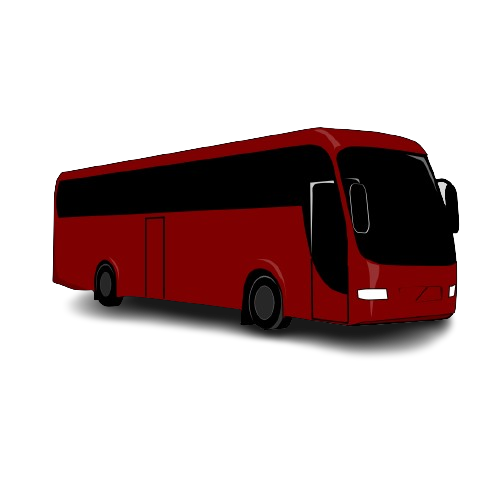Duration
9D/8NTrek Difficulty
DifficultHighest Altitude
5,282mtBest Time
June to SeptemberPrice
49000/-
Uttarakhand
Lamkhaga Pass Trek via (harsil)
Details
The Lamkhaga Pass trek is known for its stunning landscapes, diverse flora and fauna, and challenging terrain. Trekkers get the opportunity to cross rivers, navigate through dense forests, and ascend to high altitudes, providing a true Himalayan adventure. The pass itself stands at an elevation of approximately 5,282 meters (17,290 feet) above sea level.
Pickup from Dehradun and Drive to Harsil
Journey to Harsil: Begin your adventure with a pickup from Dehradun, followed by a scenic drive to Harsil, a tranquil village known for its natural beauty and apple orchards.
Arrival and Rest: Arrive in Harsil and spend the remainder of the day resting or exploring the surroundings. Prepare for the trek ahead.
Trek from Harsil to Lal Devta Camp
First Day of Trekking: Start your trek from Harsil, heading towards Lal Devta Camp. This initial stretch introduces you to the pristine landscapes of the region.
Camp at Lal Devta: Set up camp at Lal Devta for the night, enjoying your first evening in the wilderness.
Trek from Lal Devta Camp to Kyarkoti
Ascend to Kyarkoti: Continue your trek from Lal Devta Camp, ascending towards Kyarkoti. The trail offers stunning views of the Himalayas and passes through diverse terrains.
Arrival at Kyarkoti: Reach Kyarkoti and set up camp. This serene location offers a peaceful setting for the night.
Trek from Kyarkoti to Lamkhaga Base
Journey to Lamkhaga Base: Trek from Kyarkoti towards the Lamkhaga Base Camp. This part of the trek starts to become more challenging as you approach the higher altitudes.
Camp at Lamkhaga Base: Prepare for the upcoming pass crossing by spending the night at Lamkhaga Base Camp, surrounded by towering peaks.
Rest Day for Acclimatization
Acclimatization at Lamkhaga Base: Spend the day at Lamkhaga Base Camp, resting and acclimatizing to the altitude. Use this time to explore nearby areas or simply relax and prepare for the next day's challenging trek.
Trek from Lamkhaga Base Camp
Crossing Lamkhaga Pass: Embark on the challenging trek from Lamkhaga Base Camp over the Lamkhaga Pass. At 5381 meters, this is one of the high-altitude passes in the region, offering breathtaking views and a sense of accomplishment.
Descent to Dundhar Camp: After crossing the pass, descend to Dundhar Camp for the night. This campsite offers a well-deserved rest after the day's exertions.
Trek from Dundhar Camp to Dumti Camp
Trek to Dumti Camp: Continue your descent from Dundhar Camp to Dumti Camp. The trek takes you through picturesque landscapes, with stunning views of the valleys and peaks.
Camp at Dumti: Set up camp at Dumti, another serene spot perfect for resting after a day of trekking.
Trek from Dumti Camp to Rani Kanda
Journey to Rani Kanda: Trek from Dumti Camp towards Rani Kanda. This section of the trek offers more gentle terrain, with beautiful meadows and streams.
Camp at Rani Kanda: Arrive at Rani Kanda, known for its beautiful meadows. Spend the night camping in this idyllic location.
Trek from Rani Kanda to Chitkul Road Head
Final Stretch: Complete the final leg of your trek from Rani Kanda to the Chitkul Road Head. Chitkul is the last inhabited village near the Indo-Tibetan border, known for its picturesque landscapes.
Journey Conclusion: Upon reaching the road head, mark the end of your trek. Arrange for transportation back to civilization, carrying with you the memories of crossing the Lamkhaga Pass and the stunning beauty of the Himalayan wilderness.
Terms and Conditions
- Carry valid id card i.e. Aadhar Card/Passport/Driving Licence.
- Modification or Amendment is accepted in compliance with the cancellation policy. Any changes in tax must be paid by the guest.
- Any changes in tax must be paid by the guest.
- Hike2Heaven reserves the right to cancel the booking if the balance amount is not paid at the time of arrival.
- Guaranteed bookings are those for which the full and final payments have been received before start of Trek.
- 30% of the payment must be done at the time of booking.
- The remaining 70% of the payment must be cleared before arrival as it is required to arrange stay, food, and other equipment for the trek.
- Full payment must be made in advance to confirm bookings and can be done in Cash/UPI/Bank account only.
- Personal cheques and post-dated cheques are not acceptable.
- Payments can be deposited using bank details, online payment, Gpay, Phonepe, Paytm.
- A scan or fax copy of the bank-stamped deposit Pay-in slip or a screenshot of the transaction is required for online transfers.
Cancellation Policy
| Number of Days prior to Trek | Cancellation Charges applicable |
| 30 Days before | 10% |
| 8-29 Days before | 30% |
| 7 Days before/ No show | No refund |
Note: - Contact us in case of change of dates/trek
Trek Cost Inclusion
- Accommodation: - Stay is included on all days of the trek. In tents/guest house double/triple sharing only. Guesthouse stay will be at base of Trek and on other days you will be staying in tents.
- Meals: - Meals are simple, nutritious, and vegetarian.
Day Meal included Day-1 of base camp arrival Dinner & Breakfast next morning Next Days on Trek Breakfast, Packed lunch & Dinner Final Day at Base camp for Departure Dinner & Breakfast next morning - Non-veg meals are not served.
- Trek Equipment: - All the trek equipment will be included like a sleeping bag, Camping Tent, kitchen tent, utensils, mattress, tent, toilet tent, and crampon (if needed).
- Transportation: - Transportation charges are included if opted for.
- First aid medical kits.
- All the needed forest entry fees along with permits.
- Your trek will be led by a trained, experienced professional guides and trek leaders with a solid guiding background, trekking experience, and a passion for leading people into breathtaking terrains.
Trek Cost Exclusion
- All kinds of personal expenditures are excluded.
- Anything that we have not mentioned above.
- The trek cost is not inclusive of meals bought during the journey on 1st day and last day. (Food starts from dinner at base camp on day first till last day morning breakfast).
- Mules or porter charges to carry private baggage.
- Any kind of emergency evacuation charges.
Packing List
Things you must take on the trek
- DOCUMENTS REQUIRED
- VITAL GEAR KIT
- PERSONAL MEDICAL/HEALTH KIT
1.DOCUMENTS REQUIRED: -
To ensure a smooth and hassle-free trekking experience with Hike2Heaven, make sure you have the following documents ready. These documents are required by both Hike2Heaven and the forest department, and without them, you will not be permitted to trek.
1.Government Photo Identity Card: Carry the original and a photocopy of a government- issued photo identity card. This can include a driver’s license, Aadhar Card, or passport. The forest department requires this for identification purposes.
2. Disclaimer Certificate: The disclaimer certificate consists of two sections:
•Personal Medical Record if anyDuring registration at the base camp, hand it over to your Trek Leader.
Pro Tips:. Safeguard your important documents by placing them in a clear plastic cover and sliding them into the inner pocket at the back of your backpack. This precaution prevents them from getting wet and ensures their safety throughout the trek.
Having these documents in order ensures a smooth check-in process and allows you to focus on the adventure that lies ahead. Trek safely and enjoy your journey with Hike2Heaven!
2. VITAL GEAR KIT: -
Before making any gear purchases, consider inquiring at Hike2Heaven for custom-made, high- quality gear available at just 5% of the buying cost. Rent trekking essentials like shoes, backpacks, padded jackets, trekking poles, rainwear, and headlamps for less than Rs 1400 for the entire duration of your trek.
-
Here's a comprehensive list of everything you need for your trek:
- Trekking shoes with ankle support
- Backpack with rain cover
- Daypack for the summit day (10-15 L)
- 1 woollen sweater
- 1 fleece
- 1 padded jacket
- 1 woollen sweater
- 2 fleeces
- 1 padded jacket
- 1 pair of thermals
- 1 woollen sweater
- 2 fleeces
- 1 padded jacket
- Sunglasses
- Sun cap with flaps
- Waterproof gloves
- Balaclava
- Socks (2 pairs of Dry fit + 1 pair of Woollen)
- Headlamp
- Trekking pole
- Rain jacket + pants / poncho
- Sunscreen
- Moisturiser
- Light towel
- Lip balm or Vaseline
- Toilet paper
- Toothbrush
- Toothpaste
- Reusable plastic covers (for used clothes)
- Steel lunch box, spoon, and mug
- Two water bottles or Hydration Pack **Our top tip: Keep your backpack light. Hike2Heaven promotes low-impact sustainable trekking, and carrying your own backpack reduces your impact on the mountains by 20%. We encourage all trekkers to carry their own backpacks unless they have a justifiable reason not to. Trek responsibly and enjoy your adventure!
1. Shoes and Backpack:
2. Warm Layers and Clothes:
Spring, Summer, and Monsoon Treks (3 layers):
Autumn Treks (4 layers):
Winter Treks (5 layers):
3. 3 collared T-shirts (Wear one, carry two)
4. 2 quick-dry trek pants (Wear one, carry one)
5. Accessories:
6. Toiletries:
7. Cutlery:
3.PERSONAL MEDICAL/HEALTH KIT: -
Ensure you carry these medicines with you, easily accessible always. Remember not to take any medicine unless you have consulted your trek leader.
1. Diamox (1 Strip): An essential part of Live Saving Drugs, Diamox helps reduce the chances of Acute Mountain Sickness on the trek.
2. Dolo 650 (5 tablets): A paracetamol that tackles fever and mild pain.
3. Avomine (4 tablets): If you are prone to motion sickness, carry Avomine. Take one-half hour before the start of your road journey.
4. Combiflam (5 tablets): Useful for sudden twists or muscle strains. Combiflam is a pain reliever containing paracetamol.
5. Digene (4 tablets): Take it if you feel the food, you've consumed is undigested. Alert your trek leader immediately, as it could be a sign of AMS.
6. ORS (6 packs): Consume an ORS pack at least once a day, usually mid-day during your trek. It replenishes essential salts lost while trekking. Tip: It also makes cold water easier to drink.
7. Knee Brace (optional): Carry this if you are prone to knee injury or have known issues of knee pain.
Our trek leaders carry a high-altitude medical kit, including Life Saving Drugs, and are trained to handle emergencies. Contact your trek leader before consuming any of these medicines.
























Write Your Review